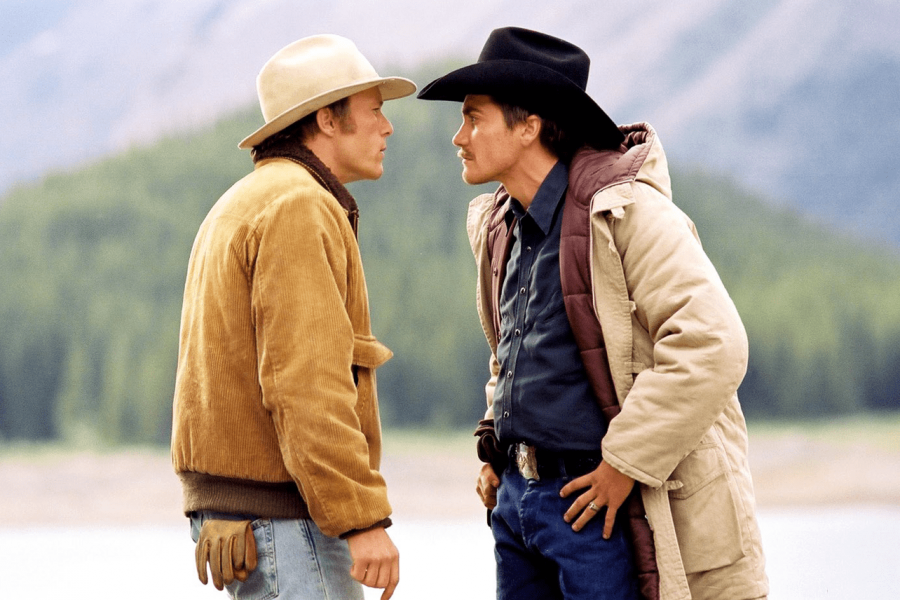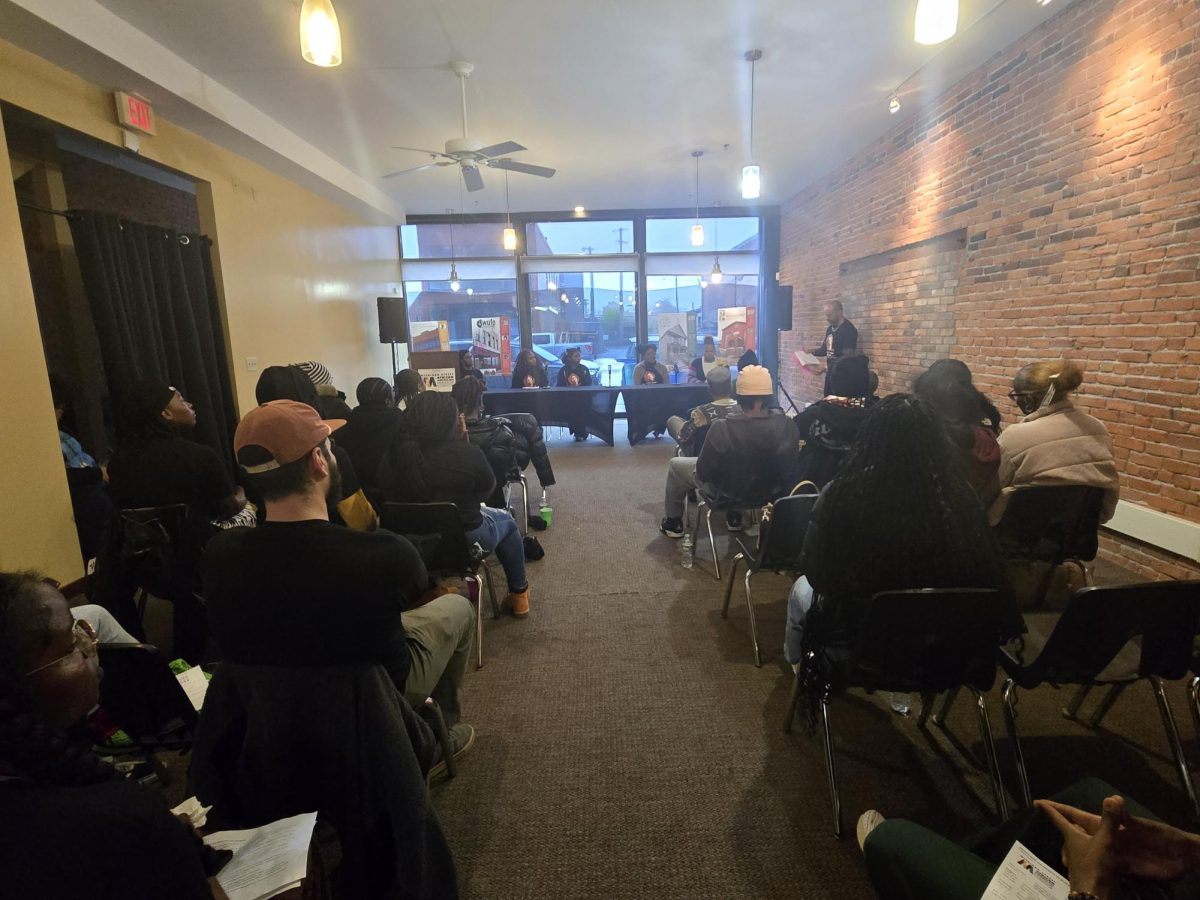Revisiting: “Brokeback Mountain”
November 27, 2020
In a country where heterosexual white men rule, there is a certain amount of privilege allotted to lower class white men. This goes back to Bacon’s Rebellion.
Virginia settlers teamed up with different groups of people to rebel against the British upper class. It was an attempt to get the upper class to recognize the interests shared across all classes of people.
As a response to the unrest, slave codes were strengthened, making unity and organization with Virginia colonizers near impossible.
You’re probably thinking: Why is this history lesson in a movie review?
For this instance, it provides a great set up for the exposition in the film. Two ranch hands, wannabe cowboys of the old west struggle make a living. They come from backgrounds that are breeding grounds for unstable masculinity.
Low income households, neglectful families, and constant reminders of their expandability as men, despite the makeup of the county making them look better than that.
Western films like “The Searchers” and “A Fistful of Dollars”, and male icons such as John Wayne, and Clint Eastwood represents the allure of the old west—independent strong white men as protectors, providers, and executors of justice.
Films of the western genre in the mid-20th century showed men who made things happen. In modern westerns however, its portrayal of the might of white men became more nuanced and empathetic to those who were subjugated to satiate their thirst for power.
Films like “Dances With Wolves” and “Unforgiven” showcase a warmer and sobering depiction of men in the old west, and norms of masculinity and justice of the time. These films do not gloss over the rigid standard imbued with mismatched norms, they tackled them head on.
Two men suddenly enter a romantic relationship with each other. They live in a world which has forgotten about them, but still holds them to standards that are not worth much other than playing a part. Those privileges were striped from them before the relationship began.
Ennis can barely hold down a job and has trouble expressing himself, due in part to a traumatic experience as a kid. Ennis isn’t his own man. He never had the tools to become one.
Most decisions he makes are predicated on the fear his father instilled in him as a child, and enforced in normal society that revolves around antiquated expectations whose outcomes are not guaranteed with obedience. The only thing they guarantee is the limited quantity of privilege lower class white men are allotted.
Jack constantly was ridiculed by his father, and later his father in law, and barely had any say over his son’s life as the wife made most of the money.
They are outlaws in a world that was theirs for the taking. Their love was outside the codification of society which systematically rejected them anyway.
This relationship was so haphazard and banal, so much that each time the audience saw Ennis and Jack kiss, they were like wild animals short of eating each other’s faces.
They have to meet in the middle of nowhere in the forest to avoid being hunted. They speak in short sentences. Body language communicates everything their mind denies. They internalize the anguish, and act out in public. Ennis is mush mouthed and timid, while Jack is articulate and assured.
We don’t see the effects of the affair on their families. Ennis’s wife is noticeably devastated, while Jack’s wife is barely suspicious.
This situation has never happened in their modified tiny worlds in the American West. Gay relationships didn’t exist in Westerns that glorified the near-sociopathic cowboys, and it didn’t exist in their history textbooks.
In the bible, it outright disparages it, so it either doesn’t exist or it is hated. These positions seem to be engendered as the women look away and cry, and the men make examples of these outliers of society.
They effectively made gay men a myth or a cautionary tale.
It is hard for the main characters to confront the truth of their love, as they quickly deny the terms associated with their preference. The truth destroys the expectations of masculinity as it becomes more encompassing and duly responsible for its impact on the human condition.
It compelled men and women to rethink not their physical roles, but their emotional roles to one another.
The capability to empathize and love are equally present and that supersedes the Hollywood version of men and etiquette of the western frontier.




